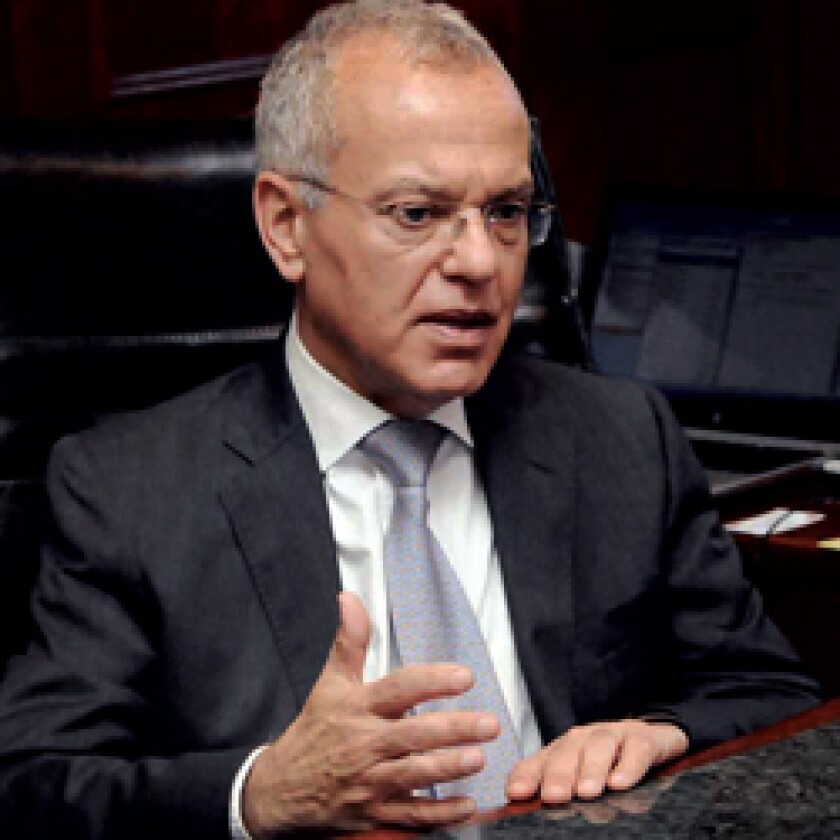One particularly well known but cynical Latin American economist argues that finance ministers in the region have not had a particularly hard job shining in recent years, with money flooding into emerging markets thanks to an ultra-accommodative US Federal Reserve.
For Paraguay, beset by a bout of political instability and an erratic soya-driven economy that has jumped from recession to double digit growth twice in the last five years, it has not been quite so simple.
But former central bank president Germán Hugo Rojas Irigoyen’s telling of the Paraguay story to international investors has impressed analysts since the country’s president, Horacio Cartes, brought him into the cabinet from Sudameris Bank in August 2013.
“Rojas and his team are very professional and for the first time, Paraguay has been very productive in terms of engaging the market and keeping people informed of what they’re going to do,” says Franco Uccelli, executive director in the emerging markets research team at JP Morgan in Miami.
Paraguay first tapped international capital markets under the previous administration in early 2013, but returned under Cartes and Rojas in August this year with a 30 year deal. This new focus on markets is no coincidence.
“Paraguay is generally a pretty under-invested country and the government is trying to change that,” says Uccelli. “Part of the massive investment programme is going to come from market sources.”
Santiago Mosquera, director at Fitch Ratings in New York and primary analyst for Paraguay, highlights that the finance ministry has cleared debts dating back to 1999 with European pre-shipment services companies SGS and Bivac BV, which leaves Paraguay with no holdout creditors.
Ba2/BB/BB- Paraguay boasts what Mosquera calls a “long tradition of fiscal discipline” and is on a clear upward ratings trajectory. “But what is notable is that they want to institutionalise this fiscal discipline via the fiscal responsibility law,” he says.
For Uccelli it is important that “we know what they are trying to accomplish: limit current spending while increasing capex”.
Yet the Paraguay story is more than just a marketing exercise to attract foreign capital. Economists and investors highlight efforts made under Rojas to expand Paraguay’s narrow income base. Part of this is a tax reform including income tax rises and bringing taxes on the crucial agriculture industry in line with other sectors. Again, Rojas earns praise for communication, clarity and professionalism.
“With the tax reform, the government did not go all out against the agriculture sector — they have not been fighting,” says Mosquera. “It seems the agricultural sector understands they have not been paying tax for ages and that money is needed to fund infrastructure.”
Part of the expected increased investment will also help diversify the economy. Under Rojas, “Paraguay has realised the extent to which GDP growth depends on agriculture and is trying to lower this dependence away from one single sector,” says Uccelli.
Mosquera adds: “The move from a simple commodity exporter to having an increased presence in production — for example putting soy beans through crushing plants — makes me optimistic.”
EM INTERVIEW Paraguay, finance minister Germán Rojas tells Emerging Markets, is one of the world’s largest food producers but has “around 500,000 people who are unable to feed themselves”.
At the heart of Rojas’ discourse is a clear diagnosis of how imbalances in Paraguay’s economy are affecting the country. Yet even more impressive is a well presented vision of what changes should be made.
“We want to build on our position as a supplier but at the same taking into account the environment, improving technology and being more inclusive than before,” he says. “We have begun a very decisive fight against poverty: mainly by creating the conditions for companies to generate more jobs.”
Rojas says that the tax reform will incorporate 120,000 new contributors from the agribusiness sector. And the number of those paying personal income tax has risen from 6,000 to 30,000.
“Our great challenge is to broaden the tax system,” he says. “We are conscious that our effort should be to concentrate on the formalisation of the economy.”
Doing this amid an investor-friendly climate is crucial for Rojas, who says his greatest satisfaction is that Paraguay is starting to be viewed differently to many of its peers.
“Paraguay’s income and capital gains taxes are still relatively low and attractive to foreign investors,” he says, adding that Paraguay’s simple tax system, cost of energy and labour and ease of doing business should attract investors.
“With all the reforms we wanted to make sure there was a dialogue with all parties,” he says. “Before charging ahead with the reforms we wanted to convince people that they were needed.”
Public and private sectors should benefit from increased government revenues. Improvements in agriculture technology — for example in irrigation — should allow Paraguay to have less erratic growth, if they can make the effect of weather on the soya crop only slightly less dramatic.
Business friendly Rojas is unafraid to admit the need for social spending — but always with an eye to integrating all of the population into the economy.
“Public investment in social infrastructure, especially in rural areas, will try to reduce the gap on the infrastructure given that in the last 30 years we did not invest in water access, sanitation and sewers,” he adds.
